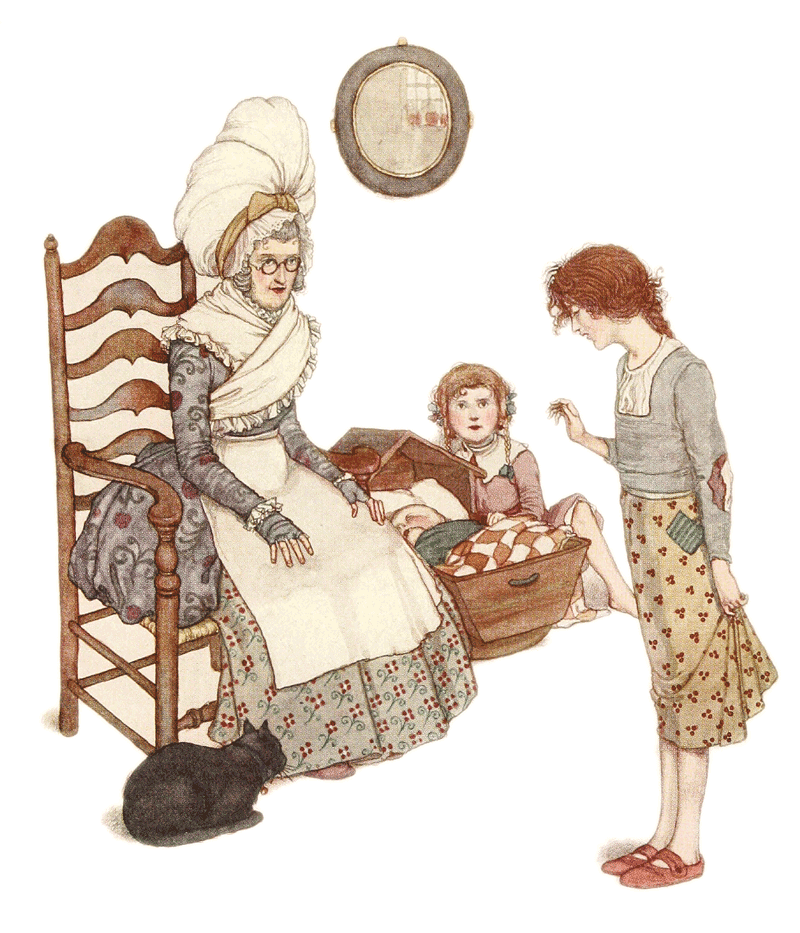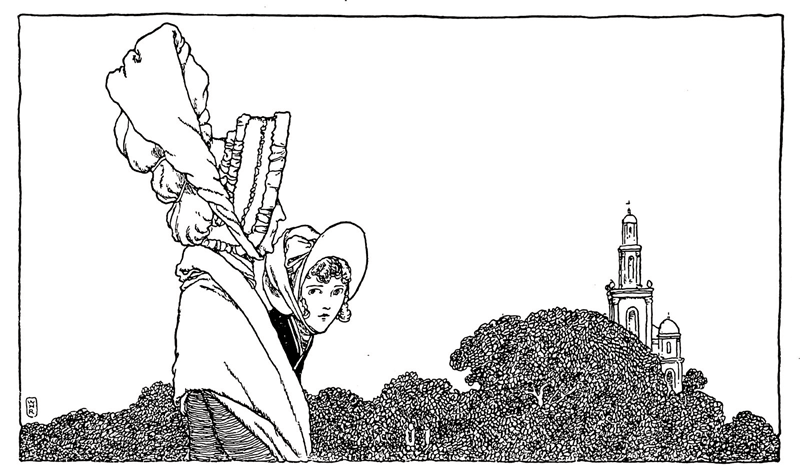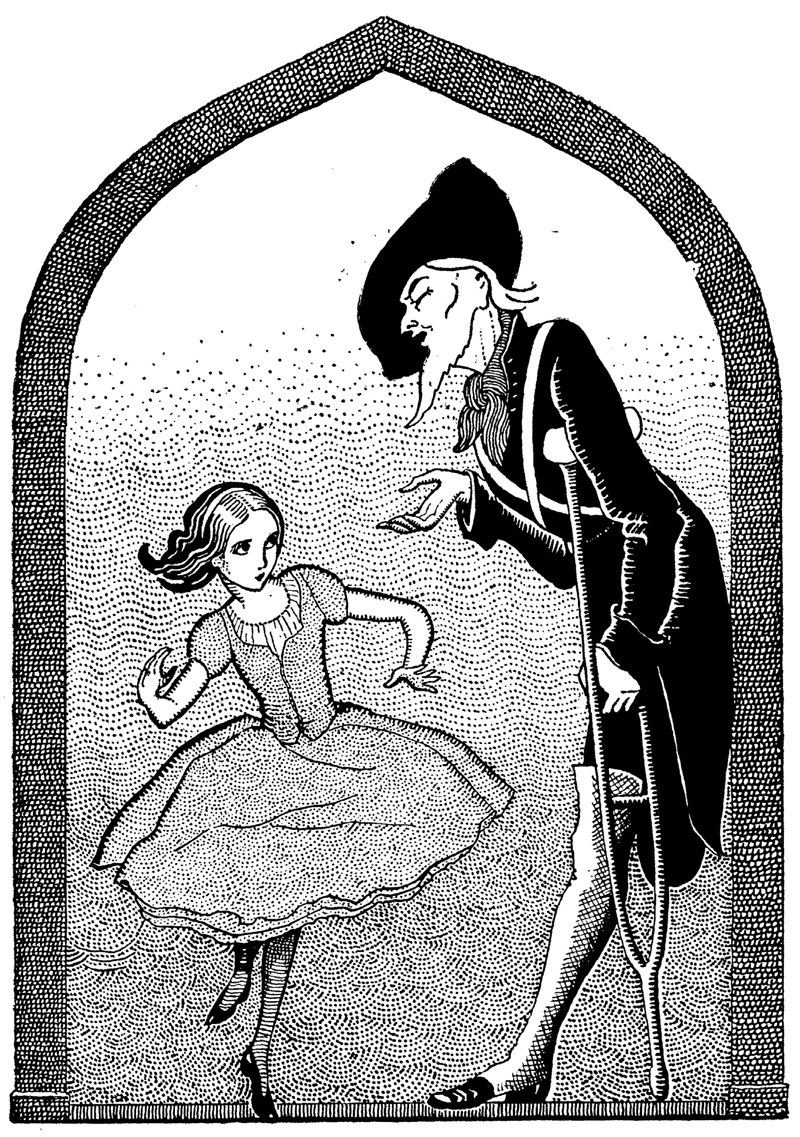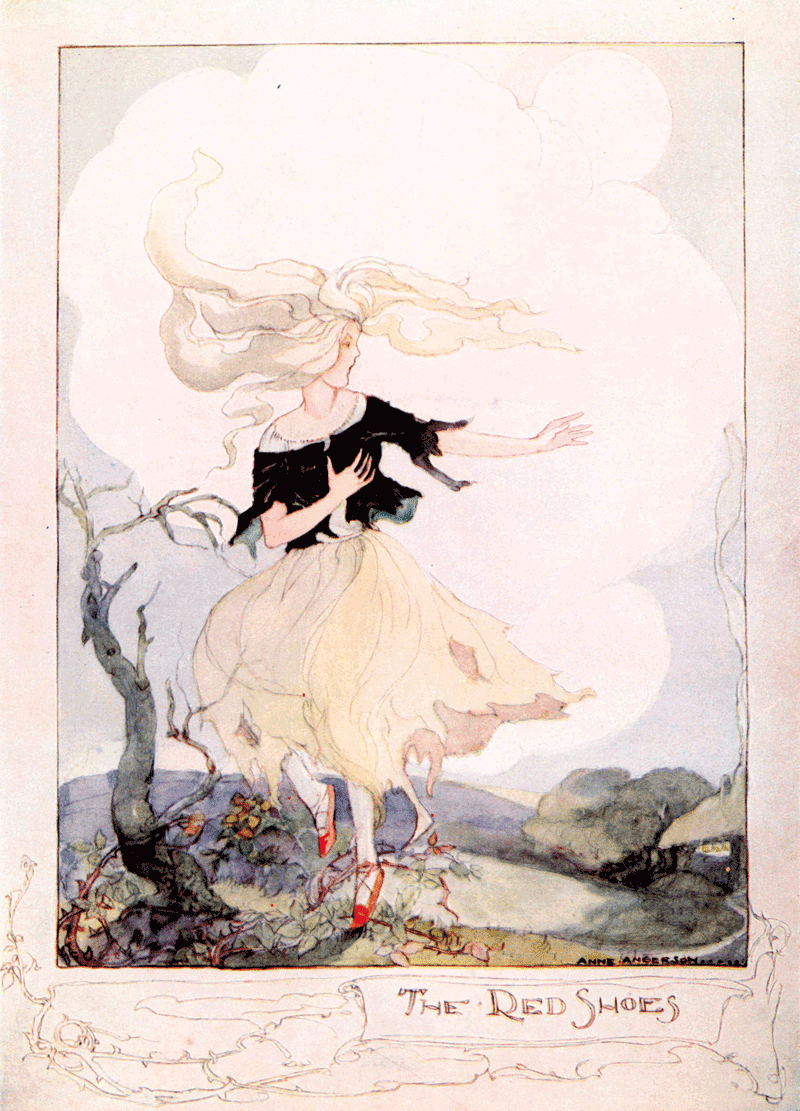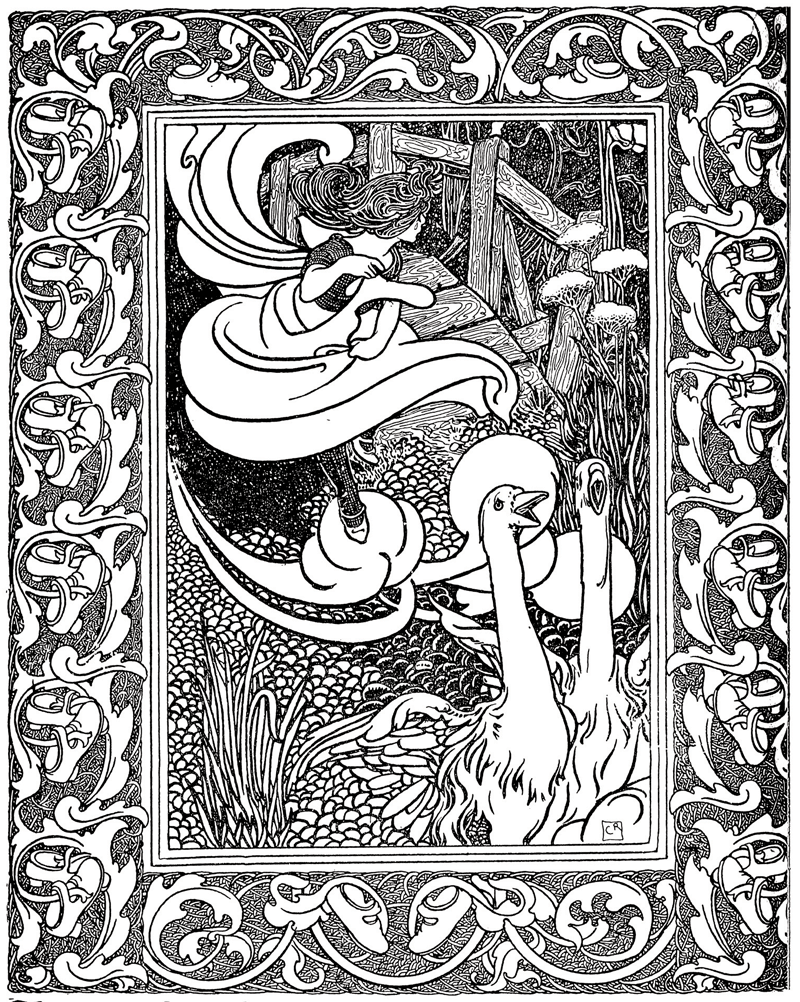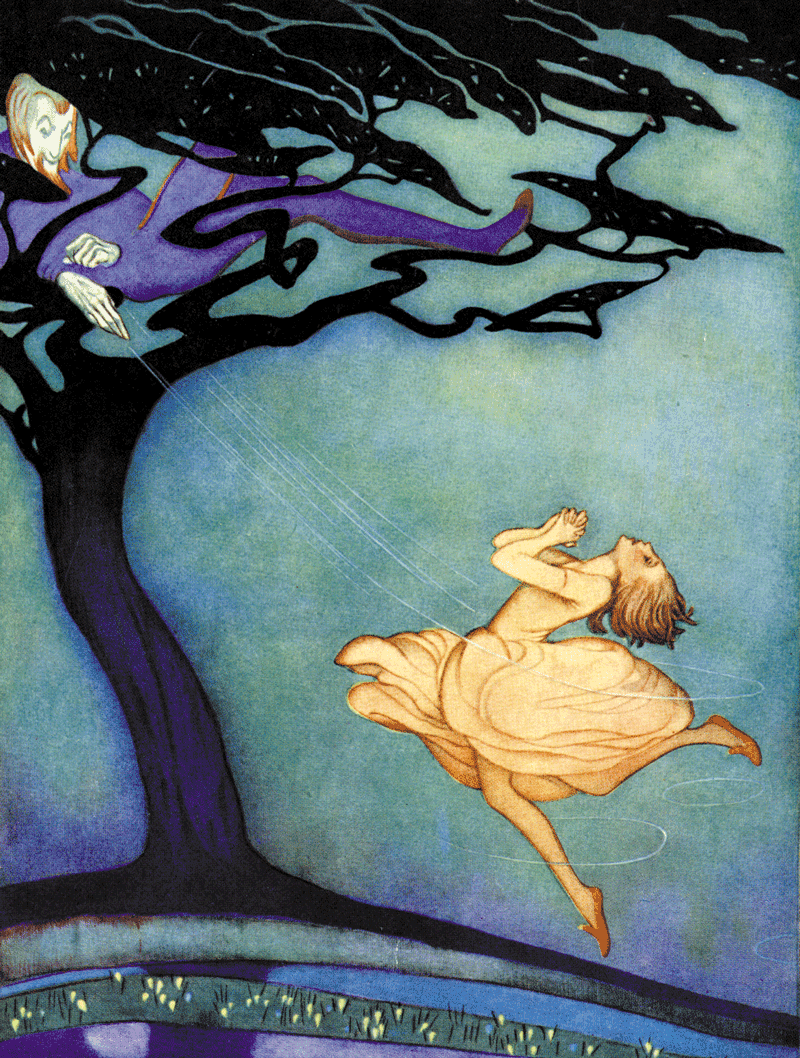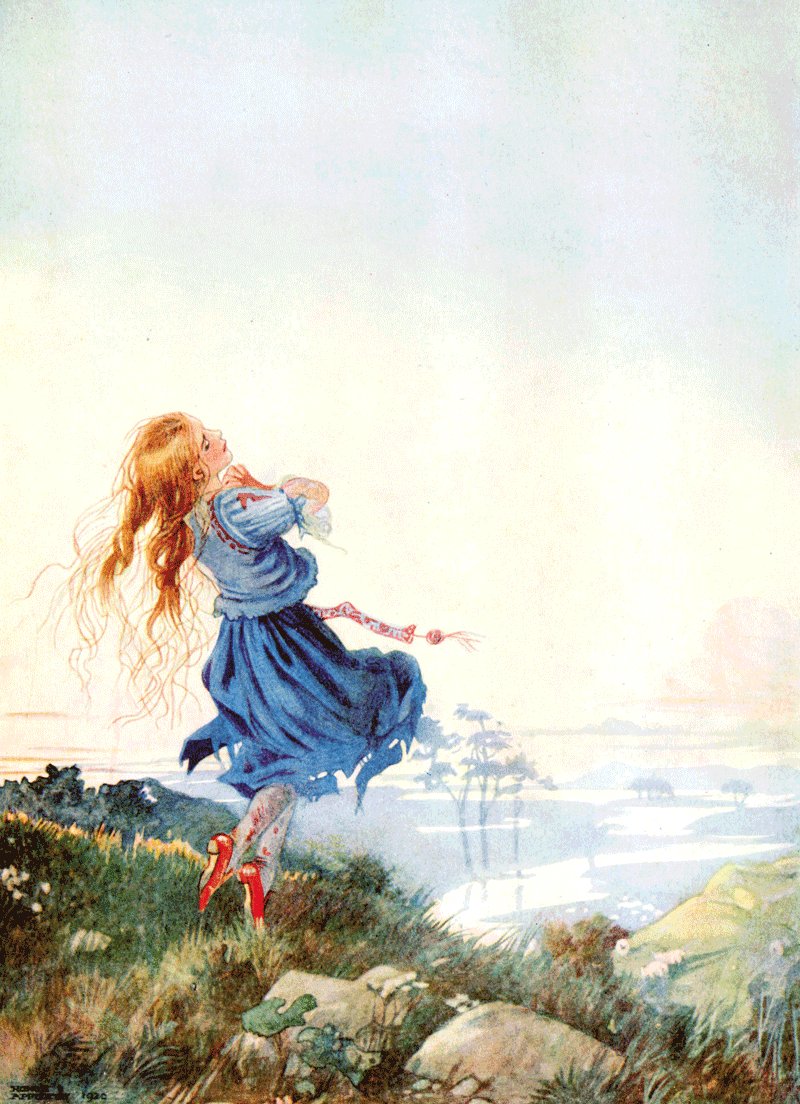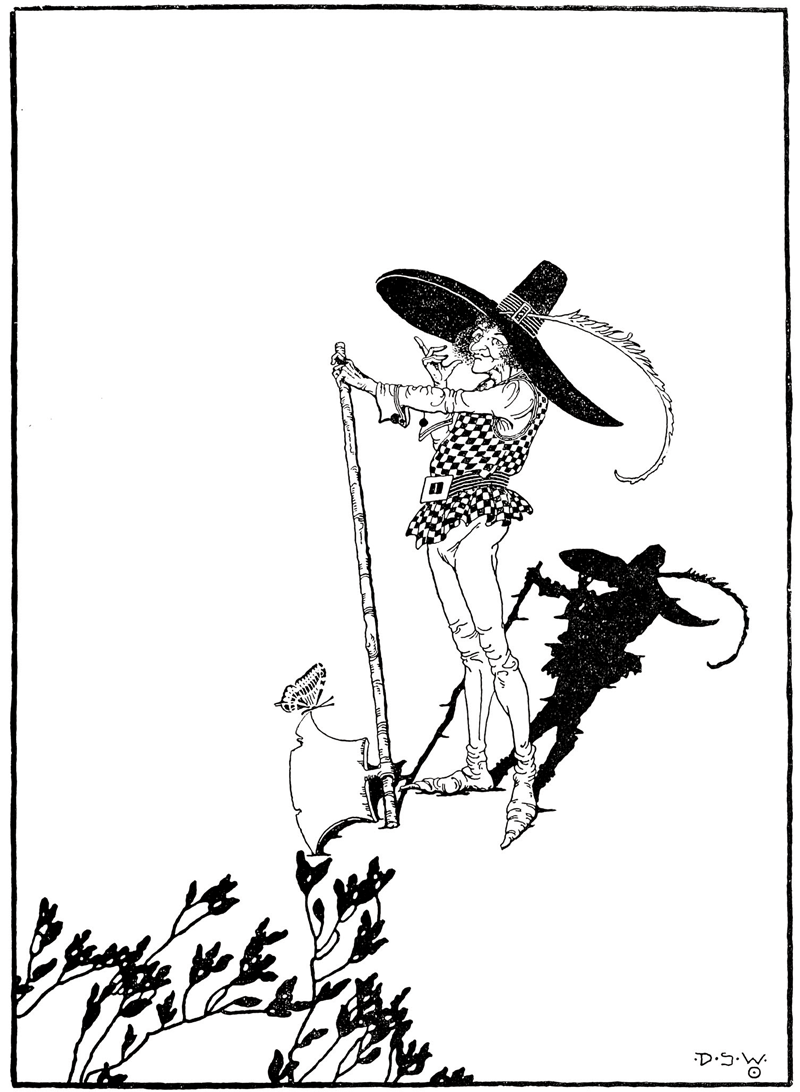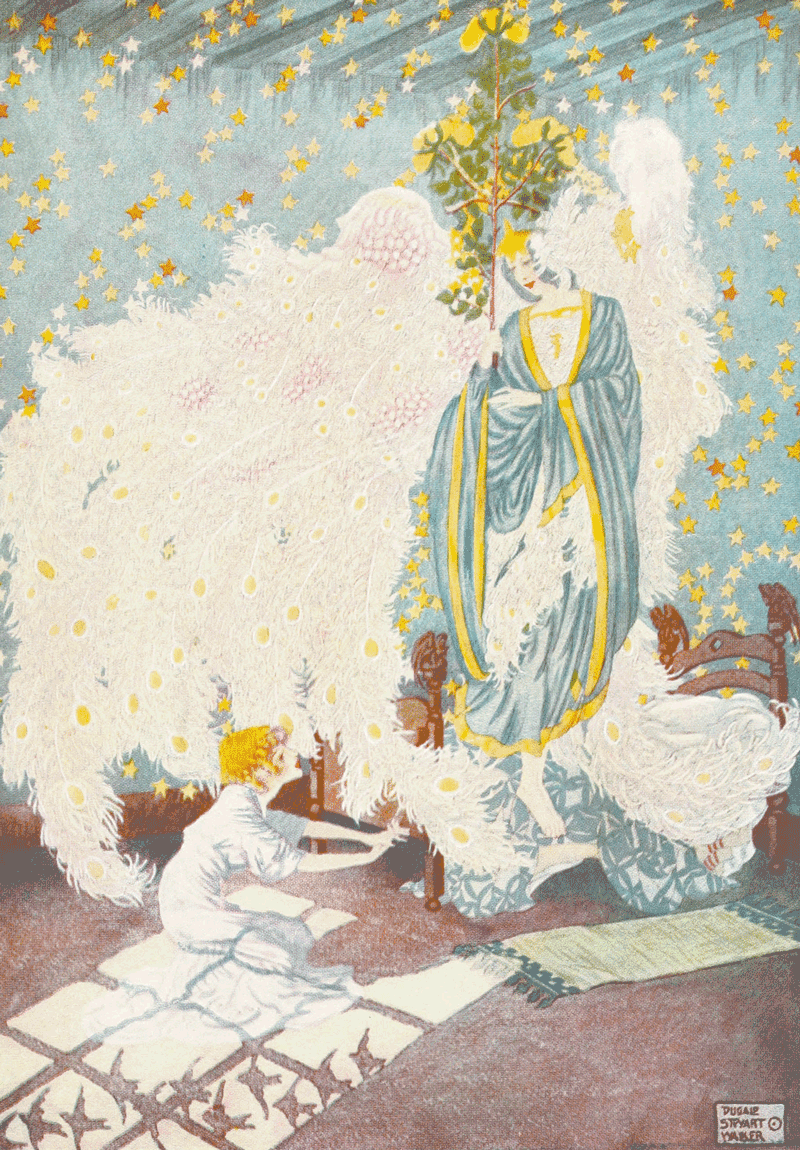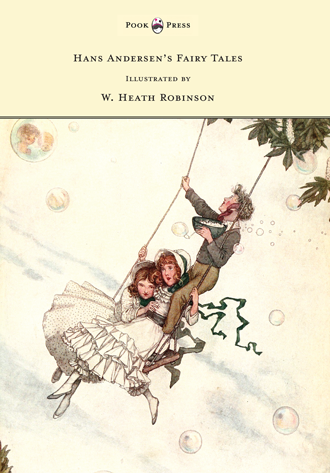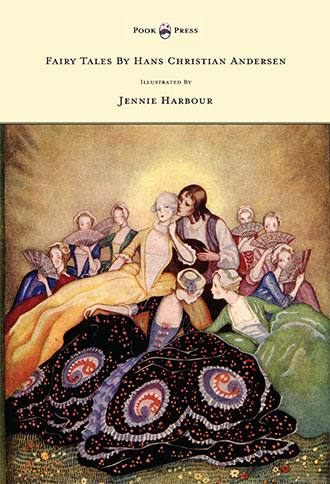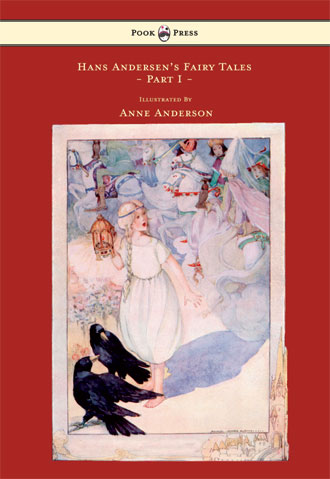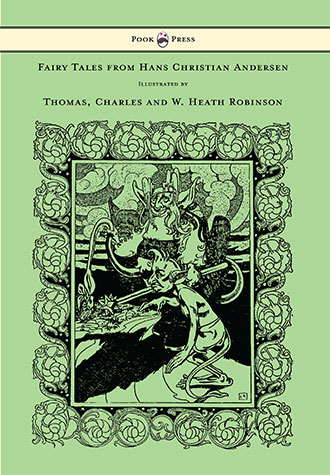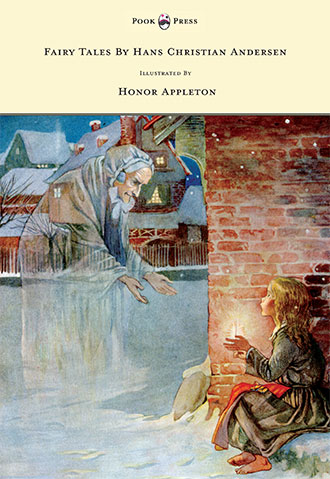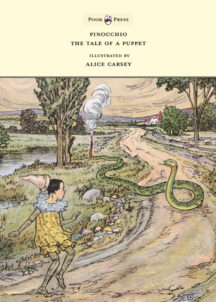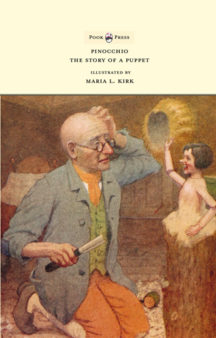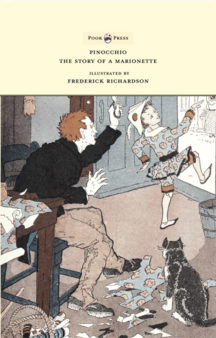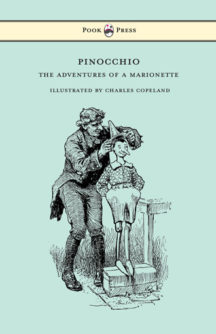The Red Shoes – A Hans Christian Andersen Tale
A proud, vain child, an old soldier with a red beard, and a pair of red shoes that will dance forever.
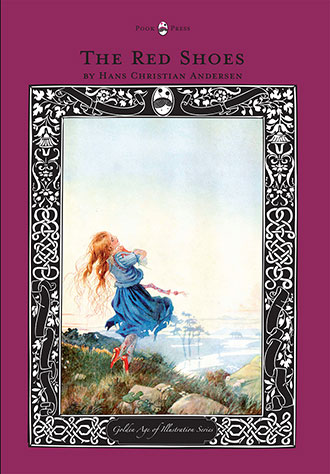
This story was taken from The Red Shoes by Hans Christian Andersen – Golden Age of Illustration Series.
The Red Shoes
A Hans Christian Andersen Tale
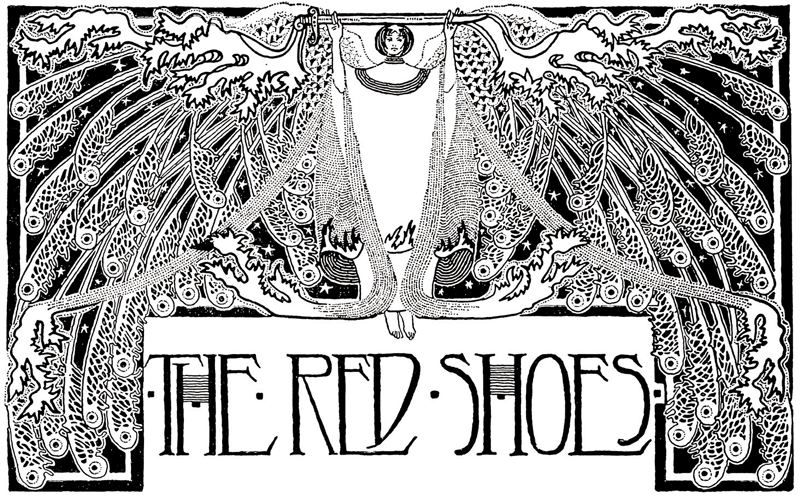
There was once a little girl, very pretty and delicate, but so poor that in summer-time she always went barefoot, and in winter wore large wooden shoes, so that her little ankles grew quite red and sore.
In the village dwelt the shoemaker’s mother. She sat down one day and made out of some old pieces of red cloth a pair of little shoes; they were clumsy enough, certainly, but they fitted the little girl tolerably well, and she gave them to her. The little girl’s name was Karen.
It was the day of her mother’s funeral when the red shoes were given to Karen; they were not at all suitable for mourning, but she had no others, and in them she walked with bare legs behind the miserable straw bier.
Just then a large old carriage rolled by; in it sat a large old lady, who looked at the little girl and pitied her, and said to the priest, “Give me the little girl and I will take care of her.”
Karen thought it was all for the sake of the red shoes that the old lady had taken this fancy to her; but the old lady said they were frightful, and they were burned. And Karen was dressed very neatly; she was taught to read and to work; and people told her she was pretty. But the mirror said, “Thou art more than pretty, thou art beautiful!”
It happened one day that the Queen travelled through that part of the country with her little daughter, the Princess; and all the people, Karen amongst them, crowded in front of the palace, whilst the little Princess stood, dressed in white, at a window, for every one to see her. She wore neither train nor gold crown; but on her feet were pretty red morocco shoes–much prettier ones, indeed, than those the shoemaker’s mother had made for little Karen. Nothing in the world could be compared to these red shoes!
Karen was now old enough to be confirmed; she was to have both new frock and new shoes. The rich shoemaker in the town took the measure of her little foot. Large glass cases full of neat shoes and shining boots were fixed round the room; however, the old lady’s sight was not very good, and, naturally enough, she had not so much pleasure in looking at them as Karen had. Amongst the shoes was a pair of red ones, just like those worn by the Princess. How gay they were! And the shoemaker said they had been made for a count’s daughter, but had not quite fitted her.
“They are of polished leather,” said the old lady; “see how they shine!”
“Yes, they shine beautifully!” exclaimed Karen. And, as the shoes fitted her, they were bought; but the old lady did not know that they were red, for she would never have suffered Karen to go to confirmation in red shoes. But Karen did so.
Everybody looked at her feet, and, as she walked up the nave to the chancel, it seemed to her that even the antique sculptured figures on the monuments, with their stiff ruffs and long black robes, fixed their eyes on her red shoes. Of them only she thought when the Bishop laid his hand on her head, when he spoke of Holy Baptism, of her covenant with God, and how that she must now be a full-grown Christian. The organ sent forth its deep, solemn tones, the children’s sweet voices mingled with those of the choristers, but Karen still thought only of her red shoes.
That afternoon, when the old lady was told that Karen had worn red shoes at her confirmation, she was much vexed, and told Karen that they were quite unsuitable; and that, henceforward, whenever she went to church, she must wear black shoes, were they ever so old.
Next Sunday was the communion day. Karen looked first at the red shoes, then at the black ones, then at the red again, and–put them on.
It was beautiful sunshiny weather; Karen and the old lady walked to church through the cornfields; the path was very dusty.
At the church door stood an old soldier; he was leaning on crutches, and had a marvellously long beard, not white, but reddish-hued; and he bowed almost to the earth, and asked the old lady if he might wipe the dust off her shoes. And Karen put out her little foot also. “Oh, what pretty dancing-shoes!” quoth the old soldier; “take care, and mind you do not let them slip off when you dance;” and he passed his hands over them.
The old lady gave the soldier a halfpenny, and then went with Karen into church.
And every one looked at Karen’s red shoes, and all the carved figures, too, bent their gaze upon them; and when Karen knelt before the altar, the red shoes still floated before her eyes; she thought of them and of them only; and she forgot to join in the hymn of praise–she forgot to repeat “Our Father.”
At last all the people came out of church, and the old lady got into her carriage, Karen was just lifting her foot to follow her, when the old soldier standing in the porch exclaimed, “Only look, what pretty dancing shoes!”
And Karen could not help it; she felt she must make a few of her dancing steps; and after she had once begun, her feet continued to move, just as if the shoes had received power over them: she danced round the churchyard, she could not stop. The coachman was obliged to run after her; he took hold of her and lifted her into the carriage, but the feet still continued to dance, so as to kick the good old lady most cruelly. At last the shoes were taken off, and the feet had rest.
And now the shoes were put away in a press, but Karen could not help going to look at them every now and then.
The old lady lay ill in bed; the doctor said she could not live much longer. She certainly needed careful nursing, and who should be her nurse and constant attendant but Karen?
But there was to be a grand ball in the town, and Karen was invited; she looked at the old lady who was almost dying–she looked at the red shoes–she put them on, there could be no harm in doing that, at least; she went to the ball, and began to dance.
But, when she wanted to move to the right, the shoes bore her to the left; and, when she would dance up the room, the shoes danced down the room, danced down the stairs, through the streets, and through the gates of the town. Dance she did, and dance she must, straight out into the dark wood.
Something all at once shone through the trees. She thought at first it must be the moon’s bright face, shining blood-red through the night mists; but no, it was the old soldier with the red beard. He sat there, nodding at her, and repeating, “Only look, what pretty dancing-shoes!”
She was very much frightened, and tried to throw off her red shoes, but could not unclasp them. She hastily tore off her stockings, but the shoes she could not get rid of–they had, it seemed, grown on to her feet. Dance she did, and dance she must, over field and meadow, in rain and in sunshine, by night and by day.
By night! that was most horrible! She danced into the lonely churchyard, but the dead there danced not; they were at rest. She would fain have sat down on the poor man’s grave, where the bitter tansy grew, but for her there was neither rest nor respite. She danced past the open church door; there she saw an angel, clad in long white robes, and with wings that reached from his shoulders to the earth; his countenance was grave and stern, and in his hand he held a broad, glittering sword.
“Dance thou shalt,” said he; “dance on, in thy red shoes, till thou art pale and cold, and thy skin shrinks and crumples up like a skeleton’s! Dance thou shalt still, from door to door, and wherever proud, vain children live thou shalt knock, so that they may hear thee and fear! Dance shalt thou, dance on—”
“Mercy!” cried Karen; but she heard not the angel’s answer, for the shoes carried her through the gate into the fields, along highways and byways, and still she must dance.
One morning she danced past a door she knew well; she heard psalm-singing from within, and presently a coffin, strewn with flowers, was borne out. Then Karen knew that the good old lady was dead; and she felt herself a thing forsaken by all mankind, and accursed by the Angel of God.
Dance she did, and dance she must, even through the dark night; the shoes bore her continually over thorns and briers, till her limbs were torn and bleeding. Away she danced over the heath to a little solitary house; she knew that the headsman dwelt there, and she tapped with her fingers against the panes, crying–
“Come out! come out! I cannot come in to you, I am dancing.”
And the headsman replied, “Surely thou knowest not who I am. I cut off the heads of wicked men, and my axe is very sharp and keen.”
“Cut not off my head!” said Karen; “for then I could not live to repent of my sin; but cut off my feet with the red shoes.”
And then she confessed to him all her sin, and the headsman cut off her feet with the red shoes on them; but even after this the shoes still danced away with those little feet over the fields, and into the deep forests.
And the headsman made her a pair of wooden feet, and hewed down some boughs to serve her as crutches; and he taught her the psalm which is always repeated by criminals; and she kissed the hand that had guided the axe, and went her way over the heath.
“Now, I have certainly suffered quite enough through the red shoes,” thought Karen; “I will go to church and let people see me once more I” and she went as fast as she could to the church-porch; but, as she approached it, the red shoes danced before her, and she was frightened, and turned her back.
All that week through she endured the keenest anguish, and shed many bitter tears. However, when Sunday came, she said to herself, “Well, I must have suffered and striven enough by this time; I dare say I am quite as good as many of those who are holding their heads so high in church.”
So she took courage and went there; but she had not passed the churchyard gate before she saw the red shoes again dancing before her, and in great terror she again turned back, and more deeply than ever bewailed her sin.
She then went to the pastor’s house, and begged that some employment might be given her, promising to work hard and do all she could. She did not wish for any wages, she said; she only wanted a roof to shelter her, and to dwell with good people. And the pastor’s wife had pity on her, and took her into her service. And Karen was grateful and industrious.
Every evening she sat silently listening to the pastor, while he read the Holy Scriptures aloud. All the children loved her; but when she heard them talk about dress and finery, and about being as beautiful as a queen, she would sorrowfully shake her head.
Again Sunday came; all the pastor’s household went to church, and they asked her if she would not go too, but she sighed and looked, with tears in her eyes, upon her crutches.
When they were all gone, she went into her own little, lowly chamber –it was but just large enough to contain a bed and chair–and there she sat down with her psalm-book in her hand; and while she was meekly and devoutly reading in it, the wind wafted the tones of the organ from the church into her room, and she lifted up her face to heaven and prayed, with tears, “O God, help me!”
Then the sun shone brightly, so brightly–and behold! close before her stood the white-robed Angel of God, the same whom she had seen on that night of horror at the church-porch, but his hand wielded not now, as then, a sharp, threatening sword. He held a lovely green bough, full of roses.
With this he touched the ceiling, which immediately rose to a great height, a bright gold star spangling in the spot where the Angel’s green bough had touched it. And he touched the walls, upon which the room widened, and Karen saw the organ, the old monuments, and the people all sitting in their richly-carved seats, and singing from their psalm-books.
For the church had come home to the poor girl in her narrow chamber, or rather the chamber had grown, as it were, into the church; she sat with the rest of the pastor’s household, and, when the psalm was ended, they looked up and nodded to her, saying, “Thou didst well to come, Karen!”
“This is mercy!” said she.
And the organ played again, and the children’s voices in the choir mingled sweetly with it. The bright sunbeams streamed warmly through the windows upon Karen’s seat. Her heart was so full of sunshine, of peace and gladness, that it broke; her soul flew upon a sunbeam to her Father in heaven, where not a look of reproach awaited her, not a word was breathed of the red shoes.
Shop the Tale
Discover this original tale, among many other macabre versions of your most beloved classics, in our collection of disturbingly dark fairy tales.


